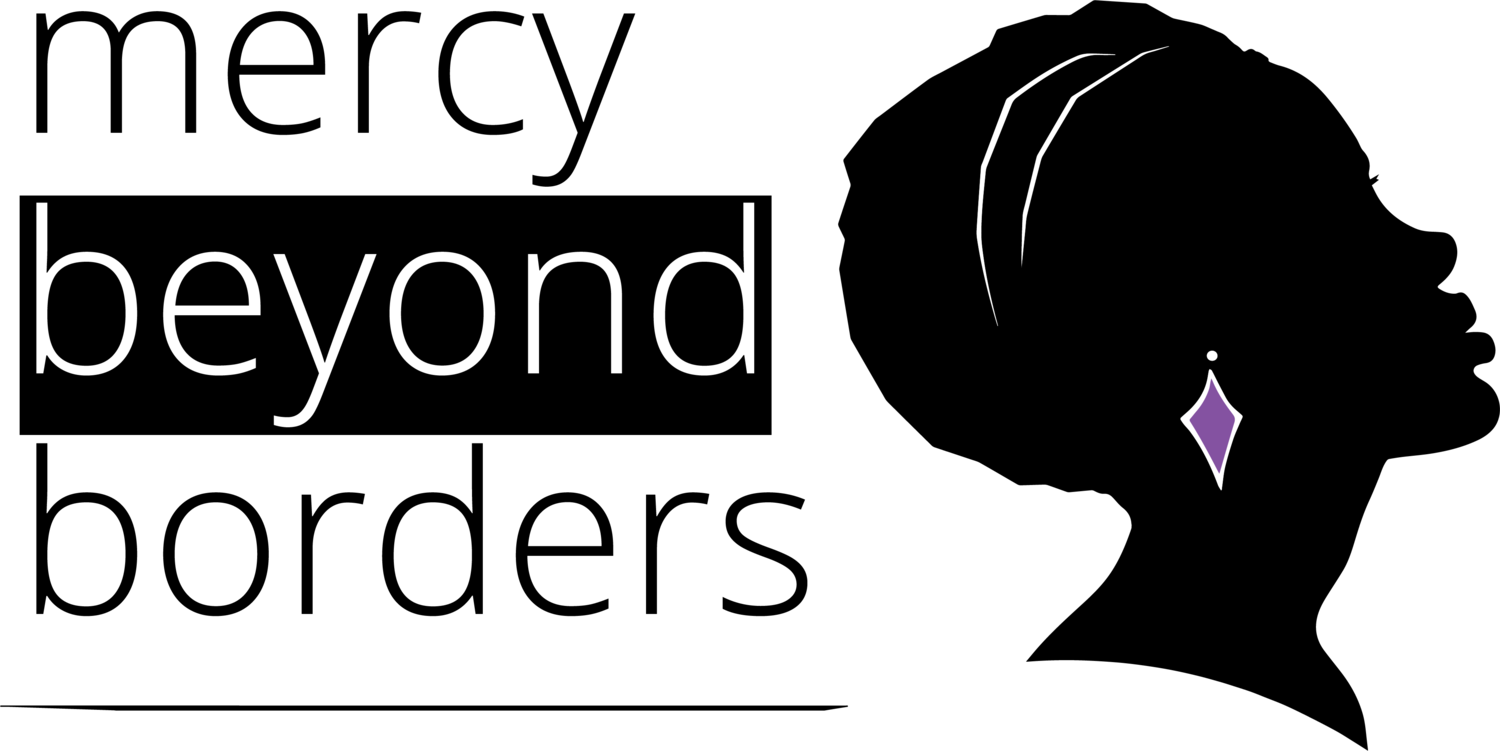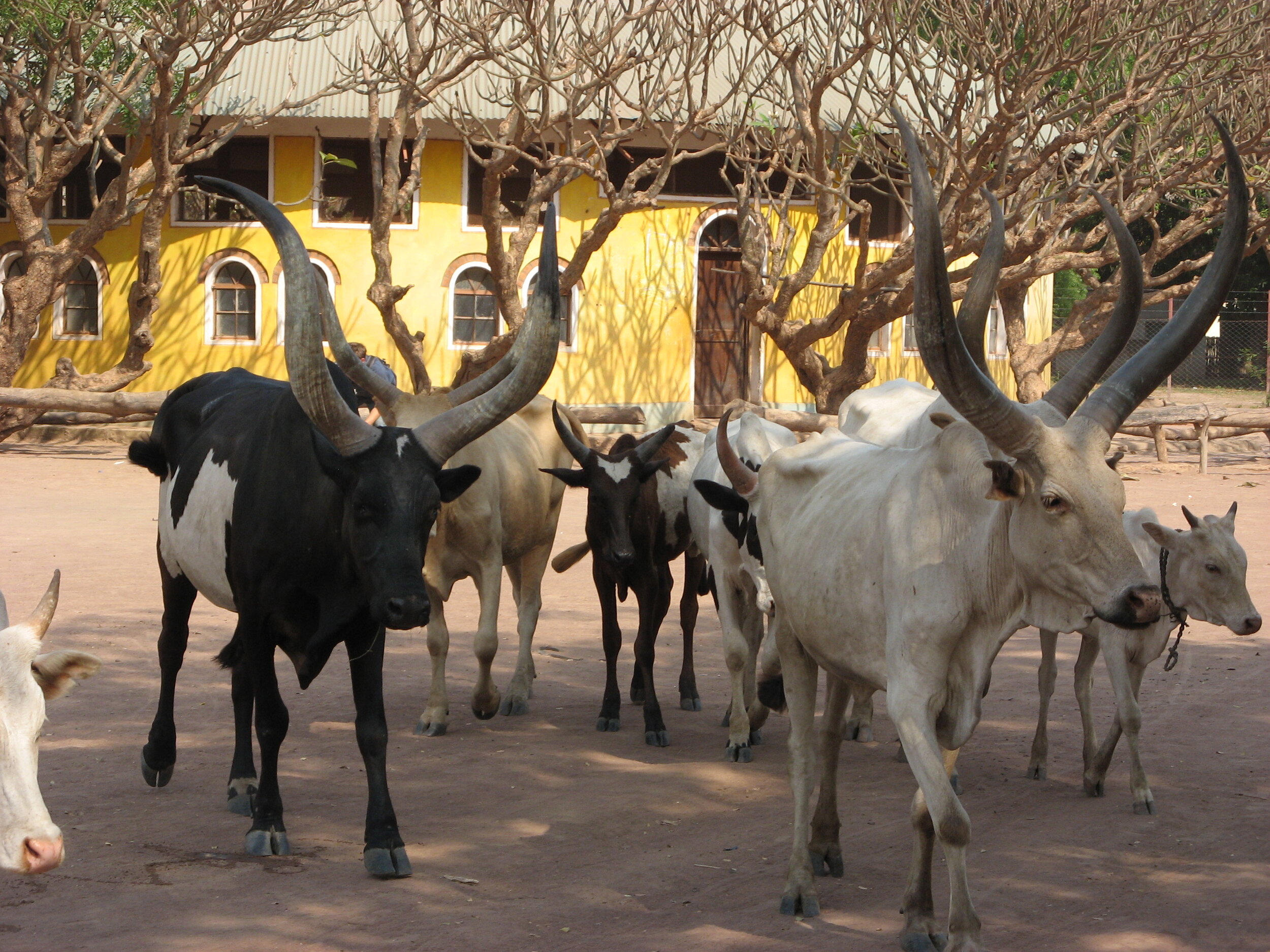What Do You See When You Look At Me?
If you are not living in South Sudan, you may think I am “just a cow”. When you look at me, you might only see a cream-colored animal, strong and beautiful and long-horned. But if that is all you see, you are missing the real me.
Photo taken in a South Sudanese cattle camp by Sr Maureen Limer, RSM.
My name is mach loor, which in Dinka language means “a bright, moonlit evening”. When the moon is full, the Dinka beat their drums; they sing and dance into the night; the children play and wrestle and listen to stories told by the elders. On moonlit nights, everyone is happy in the cattle camps. My very name reminds everyone of those good times.
From the time I was young, my Dinka keeper talked to me and sang to me. Every day he scooped up the ash leftover from a dung fire and rubbed it on my horns and spread it all over my hide to keep away the biting insects. He spread the ash on himself for the same reason.
Nowhere else in the world will you find elegantly curved horns such as we Dinka cattle have. It’s an art form. When we cattle were young, the Dinka repeatedly “shaved off” a bit of horn, causing our horns – which can grow up to 8 ft in length -- to curve inward as they grow. The longer and curvier, the prouder we feel.
The Dinka language has many words to describe the varied shapes of our curving horns. Dinka poems and songs (even love songs!) are usually about us. And when the Dinka dance they extend their arms to mimic the graceful reach and shape of our horns, their slow swaying as we walk to pasture.
If you ask a Dinka man about his cows, he will tell you: “Cattle are my life! My sustenance. My wealth. My status in the community. My marriage contract. My future livelihood. Cattle are God’s great gift to the Dinka, and thus cattle are our link back to God. ”
Think about it. I am everything for the man who owns me. It is my milk that sustains him daily. My blood that he drinks when he needs extra strength. It is my urine he splashes on his face to wash every day and rubs on his head to protect it from disease. (My urine is a natural disinfectant, and it has the added benefit of dyeing his hair a pleasing orange color.)
When my owner is ready to take a wife, he will keep me at his side while he courts her. The songs he croons will describe my lovely attributes as well as hers. When my owner marries and has children, they will suck directly from my udder as soon as they are weaned from their mother’s breast.
The Dinka love cattle so much that I am practically guaranteed to live a very long and pampered life. Well, the community might slaughter me for a grand occasion such as the arrival of an important person or the funeral feast after an elder’s death. I would be honored to sacrifice myself for the community like that.
I worry only about two things: cattle diseases for which there is no medicine at hand; and cattle rustlers who raid our herds to steal us. This has always been common, but lately has become more deadly. Raiders used to come wielding spears; now they come with AK-47s. My owner, without question, will defend me with his life.
When you look at me now, see all of this: I am so much more than a cow. I am the very center of Dinka culture. I am everything that matters.
Cattle wander past the Catholic cathedral in the city of Rumbek in South Sudan. Photo by Chris Jenkins for Mercy Beyond Borders.
Sign up for Mercy Beyond Borders’ monthly e-newsletter to learn about the challenges and triumphs of women and girls living in extreme poverty in South Sudan, Uganda, Kenya, Malawi & Haiti.


